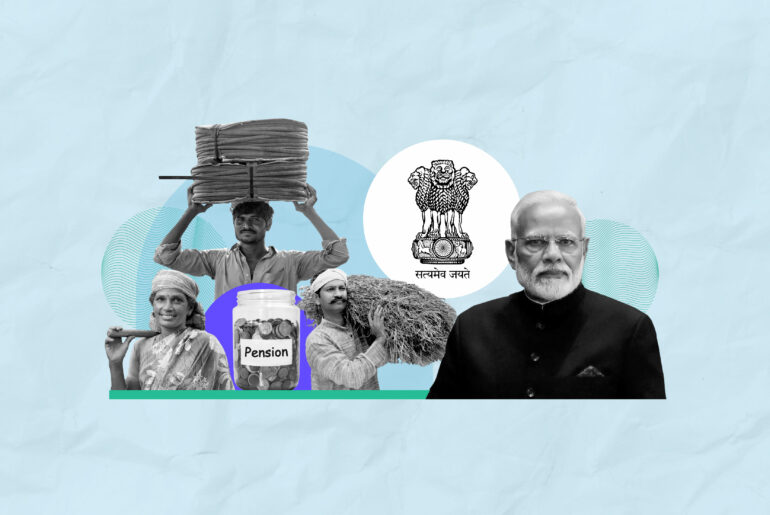Last Updated on Sep 14, 2022 by Aradhana Gotur
Every company, public or private, having 10 or more employees is mandated to pay gratuity to its employees. Gratuity is paid as a sign of gratitude. In this article, let us discuss what gratuity is in detail. We will also cover eligibility, gratuity rules, forfeiture, tax rules and more.
Table of Contents
What is gratuity?
Gratuity is a monetary benefit paid by the employer under the Payment of Gratuity Act 1972 to their employees for services rendered in the company. It is part of the salary. However, gratuity is only paid to employees who render services for 5 yrs or more to a company.
What is the Payment of Gratuity Act, 1972?
The Payment of Gratuity Act, 1972, governs gratuity payments in India. As per this act, a company is liable to pay a one-time gratuity payment to its retired employees. The act applies to ports, railways, oilfields, shops, factories, and mines. The act is enforced to provide financial security to employees after retirement. It acts as security for employees who provide services to a company for a long time.
What are the gratuity eligibility criteria?
- An employee has to complete 5 yrs of continuous service in a company.
- Gratuity is paid at the time of retirement except for certain conditions.
- The employee should be eligible for superannuation.
- Legal heir or nominee of an employee is eligible for gratuity in case of their passing or due to a disease or accident.
How is gratuity calculated?
Gratuity is a part of the cost to the company (CTC) of an employee. It is calculated based on the last drawn salary and years of service rendered by the employee. Following is the formula to calculate gratuity:
Gratuity = (15 × last drawn salary × working tenure)/30
Note:
- The amount of gratuity should not exceed Rs. 20 lakh. However, an employer can pay more than this limit; it will be termed as ex-gratia.
- The number of months in the last year of employment in excess of six is rounded off to the next number. The number of months below six is rounded off to the previous lower number.
- An organisation can pay gratuity even if it is not covered under the Act. The calculation of gratuity is based on the employee’s half-month salary for every completed year. The salary includes basic salary, dearness allowance, and commission (sales-based).
Steps of gratuity payment
The payment of gratuity involves three steps:
- An employee or an authorised person should send an application to their employer claiming gratuity
- The company calculates the gratuity amount and notifies the same to applicant and the controlling authority
- The employer has 30 days to pay gratuity to the applicant
Calculation of gratuity in case of an employee’s death
In this case, gratuity is calculated based on the employee’s tenure of service, but the amount cannot be more than Rs. 20 lakh. The following table shows the rates at which the gratuity will be payable in case of death of an employee:
| Tenure of service | Gratuity payable |
| Less than a year | 2 x basic salary |
| 1 yr or more but less than 5 yrs | 6 x basic salary |
| 5 yrs or more but less than 11 yrs | 12 x basic salary |
| 11 yrs or more but less than 20 yrs | 20 x basic salary |
| 20 yrs or more | Half the basic salary for each completed six-monthly period subject to a maximum of 33x of the basic salary |
What is forfeiture of gratuity?
Section 4 of the Gratuity Act permits an employer to withhold paying gratuity to an employee in case:
- The employee is terminated due to negligence or wilful omission, damaging the e employer’s property. The forfeited sum is based on the extent of the damage done.
- The employee is terminated due to immoral behaviour, misconduct or other violent acts.
What are the gratuity rules?
Following are the gratuity rules in India:
- Gratuity is payable by a company that has 10 or more employees on a single day in the previous 12 months. Even if the number of employees reduces to below 10, the company will be liable to pay the gratuity as per the Act.
- Gratuity is payable only if employees serve the company for at least 5 yrs. However, this condition doesn’t apply in situations like the employee’s death or disablement.
- Calculation of the gratuity is covered under the act. We will discuss the calculation in a while.
- Generally, gratuity is paid after retirement. However, there are exceptions to this rule:
- Employees can ask for gratuity while switching jobs, provided they have completed 5 yrs of service in the company
- On the passing of an employee while in service, an employer has to pay the gratuity to the nominee or legal heir
- If an employee becomes disabled due to a disease or an accident, they are entitled to gratuity
- Employees opting for VRS are entitled to get gratuity
- An employee terminated can claim gratuity but not in case of discontinuation, theft, fraud, rape, assault or molestation
- Gratuity paid to an employee’s legal heir or widow is exempted from tax.
- Gratuity of up to Rs. 20 lakh paid by the organisation under the Payment of Gratuity Act, 1972, is exempt from tax. The gratuity paid under central, state, and local governments are exempt from tax as per Gratuity Rules 2021.
- An employer is mandated to pay gratuity to their employees even when the company is under bankruptcy.
- If a nominee is a minor, an Assistant Labour Commissioner will invest the gratuity in a term deposit offered by a nationalised bank on their behalf in their name.
New gratuity rules 2022
On 1st July 2022, the new labour law was implemented for all corporations and organisations. As per the new labour law, the provident fund, working hours, and in-hand salary have been reduced. Note the following highlights:
- Organisations must ensure that 50% of employees’ Cost to the Company (CTC) is basic pay, and the rest consists of allowances, overtime, and house rent. Allowances or exemptions paid in excess of 50% of the CTC will be treated as remuneration.
- The restriction of the maximum basic pay to 50% of CTC increases the gratuity bonus to be paid to employees. The gratuity amount is calculated on a large salary base comprising basic pay and allowances.
- Employees should be paid for working overtime – for 15 minutes or more.
- The work capacity is a maximum of 48 hours
Gratuity payment rules in India
- An eligible employee should apply for gratuity within 30 days from the payable date. In case of retirement or superannuation, they should apply before one month
- An employer cannot reject an application submitted after 30 days if it was for a valid reason
- An employer must fill in the payment date and amount within 15 days of receiving the application. Gratuity should be paid within 30 days of receiving the application
- In case an employer rejects an application, they must mention the reason
- An employer may request a witness or evidence if a nominee or a legal heir claims gratuity. They will accept the claim from the date of producing the evidence
- The modes of gratuity payment are cash, cheque or demand draft
Payment of Gratuity Act 1972 Rules for disputes
An employee, legal heir or a nominee can file a complaint to the Assistant Labour Commissioner in case:
- The gratuity payable is less than what an employee feels eligible to receive
- If an employer rejects the gratuity payment application
- An employee fails to pay the gratuity or specify the payable amount to an eligible claimant within the prescribed time
Latest developments regarding gratuity
For private-sector employees, the ceiling tax exemption of gratuity amount has been raised to Rs. 20 lakh from Rs. 10 lakh. The same was implemented for central government employees after the implementation of the 7th Central Pay Commission.
Income tax and gratuity
- Gratuity received by public sector employees apart from statutory corporations is exempt from tax.
- For employees getting gratuity from an employer not covered under the Payment of Gratuity Act, the least of the below is exempted from the tax:
- Rs. 10 lakh
- Actual gratuity got by an employee
- Half-month salary of every year that an employee has completed
- For employees getting gratuity from an employer covered by the Payment of Gratuity Act, the salary of 15 days as per the last drawn salary is exempt
Types of gratuity forms
- Form I: to apply for gratuity payment
- Form J: to be used by a nominee for gratuity payment application
- Form K: to be used by a legal heir
- Form F: to put in a nominee
- Form G: to add in a fresh nominee
- Form H: to modify the nomination
- Form L: issued by the employer to the employee mentioning the date and the amount
- Form M: issued by the employer to the employee mentioning the reason behind the rejection of gratuity
- Form N: used by an employee to send an application to the labour commission
- Form O: issued by the concerned authority requesting an appearance for a case hearing
- Form P: summons issued by the concerned authority to be present for the case hearing
Frequently asked questions
What is the Gratuity Act?
The Payment of Gratuity Act, 1972, governs gratuity payments in India. The act lays down the rules of eligibility for companies and employees, calculation of gratuity, application of gratuity claim, and more.
What can you do if gratuity is not paid?
You can send a legal notice to your employer to pay the gratuity amount. If you still don’t receive it, you can approach the labour commissioner’s office.
How to add a nominee for gratuity?
Employees are required to fill in Form F when joining a company. This will allow them to nominate one or more heirs for the gratuity.
Can a company pay more than the permissible limit as gratuity in India?
Yes. A company can pay more gratuity under ex-gratia or bonus.
What is the penalty for a delay in gratuity in India?
In case of delay in the payment of gratuity, the employer has to pay simple interest on the amount throughout the period of delay.
Can you get a gratuity if you are a contract employee in a company?
If you are a contract employee in a company, and the contract is separate from the entity, you are eligible to receive gratuity from the contractor, not the company.
How is gratuity paid?
There are three modes of payment. Gratuity is paid in cash, cheque or demand draft.




